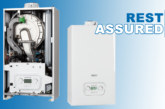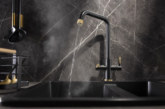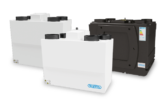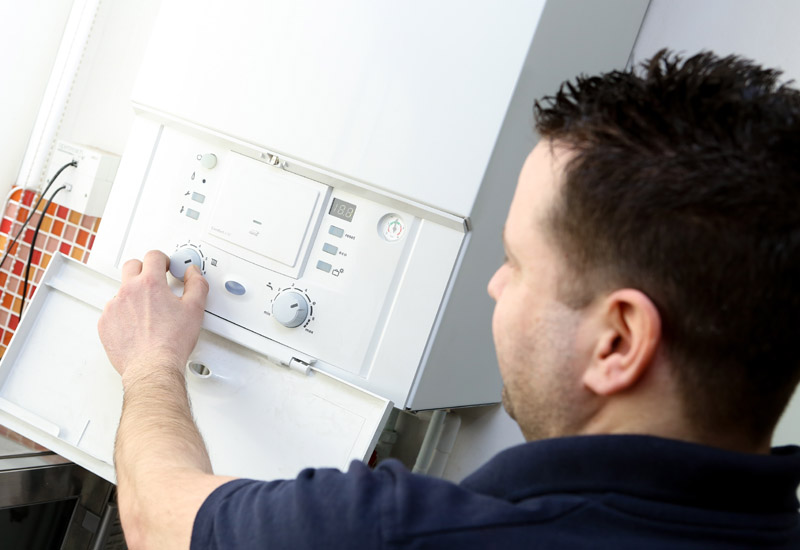
The Government’s Heat in Buildings consultation looks set to introduce a range of proposals to drive down emissions from domestic heating systems. Martyn Bridges, Director of Technical Communication and Product Management at Worcester, Bosch Group, details the considerations housebuilders will now need to make for the heating systems they install and explains the efficiency benefits that can be expected.
Since they were made mandatory some 12 years ago, the installation of condensing boilers has had arguably the most significant impact on lowering the UK’s energy consumption of any technology. So, with further reductions needed in order for the country to meet its energy targets, it stands to reason that the government should look to ways that traditional heating technologies could deliver further efficiency gains.
It is a strategy that we at Worcester are inclined to agree with. After all, renewables have certainly failed to take off as they were expected – to the extent that initiatives such as the Green Deal have virtually disappeared. This means that tapping into the constantly evolving technology on the market could offer tangible and achievable improvements without wholesale changes to the way our homes are built.
the policy will first raise the minimum required efficiency of a boiler run on natural gas to 92% whilst those run on oil will need to be at least 89% efficient.
What is the solution?
Enter the Government’s new ‘Heat in Buildings’ proposal, which is designed to do just that. Following a number of workshops wherein boiler manufacturers, trade associations and heating engineers were consulted, the Department for Business, Energy and Industrial Strategy (BEIS) has arrived at the conclusion that by tightening up, or perhaps enforcing, some of the current regulations in place surrounding boiler installations, it could make significant incremental gains in the efficiency of the heating systems that go into the country’s homes.
Whilst the finalised document is yet to be seen, the initial draft completed its public consultation period earlier this year, and it’s fair to say that the early soundbites are encouraging.
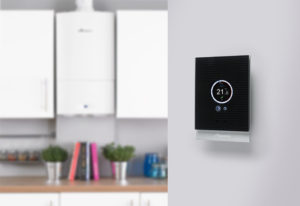
Minimum required efficiency
Firstly, the policy will first raise the minimum required efficiency of a boiler run on natural gas to 92% whilst those run on oil will need to be at least 89% efficient. With the predominant gas fired boilers, installing an A-rated appliance offers a potentially huge uplift compared to less efficient appliances, and with the addition of the right accessories could see every gas fired heating system installed achieve an A+ rating under the ErP directive.
The second part of the policy will work to ensure that the addition of certain accessories – some of which are already included within the Building Regulations – as a minimum standard, actually takes place. Specifically, this will re-enforce the need to install a room thermostat alongside a timer or programmer for every heating system. Then, one of four supplementary technologies must also be included within the system: these are presently proposed as either a flue gas heat recovery unit (FGHRU), a weather sensor, a load sensor or a smart control.
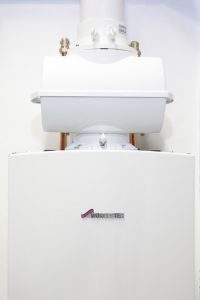
Higher performance
Each of these additional measures are designed to squeeze even better performance out of an already much improved appliance, ultimately contributing to the end-goal of lower energy consumption.
In short, installing better heating controls will allow homeowners to make sure their appliance only fires when it is needed, making them a quick and easy way to improve the system’s efficiency. As an example, installing a TPI (Time Proportional & Integral) control will help a heating system to perform more efficiently, as the device will turn the boiler off slightly before the set point since, with few exceptions, there is enough residual heat within the property to raise the temperature of the air to the required level without overshooting the desired temperature.
In a similar way, by equipping their heating systems with weather and/or load compensating technology, developers can ensure that their boilers are regulated according to the internal room temperature and external weather conditions. The easiest way of adding these functions might be through the installation of smart (or internet-enabled) controls – many of which, such as the Wave, offer built-in Weather and Load compensation to deliver that 4% uplift in energy efficiency.
Finally, an FGHRU can help to squeeze that bit more efficiency from a Combi boiler, by extracting the maximum heat expelled through flue gases and transferring it into the incoming cold water mains. Like weather and load compensation, this is an accessory suited to the new build and specification market, as it carries the added benefit of giving a boost to SAP ratings.
The limitations
Whilst we agree wholeheartedly with the measures suggested so far, it must be said that these do not currently offer a solution for Regular or System boilers. As a result, we would like to see the proposals expanded to include other high-efficiency accessories: for example, there is no present requirement to install thermostatic radiator valves (TRVs), or indeed a system filter, when fitting a new boiler; likewise, the mandatory installation of seven-day programmers, rather than simply mechanical timers, would ensure that a household’s energy usage is tailored to its specific needs.
Though not yet mandatory, these additional measures present a number of different possibilities for developers and housebuilders who remain committed to investing in the most energy efficient heating systems.
Future-proofing a housing stock in this way will not only help to avoid future adjustments further down the line, but will ultimately go a long way to reducing the country’s carbon footprint as a whole – and with 1.6 million boilers installed in the UK each year, there is a lot to be gained from adopting such a widespread, practical approach.
www.worcester-bosch.co.uk/professional


